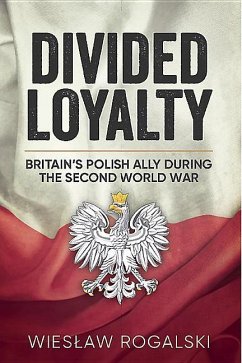At the outbreak of the Second World War, Poland was a quasi-military State undergoing rapid political and social change. Nevertheless, Britain signed an agreement with the country as part of its decision to adopt a policy of encircling Germany: a resolution requiring an ally in the East. On the collapse of Poland in October 1939, the country's political opposition executed a coup against the Polish Government and formed a new administration, which was recognised by the Allies as the Polish Government in Exile. This regime change precipitated a feud between the supporters of the new and old governments, which lasted throughout the war. In 1945, the British removed their recognition of the exiled government - now based in London - to pave the way for the Soviet Union to impose a communist administration in Poland. However striking and fateful these events were, the history of how regime change came to Britain's Polish ally has largely been ignored until now.
Hinweis: Dieser Artikel kann nur an eine deutsche Lieferadresse ausgeliefert werden.
Hinweis: Dieser Artikel kann nur an eine deutsche Lieferadresse ausgeliefert werden.








